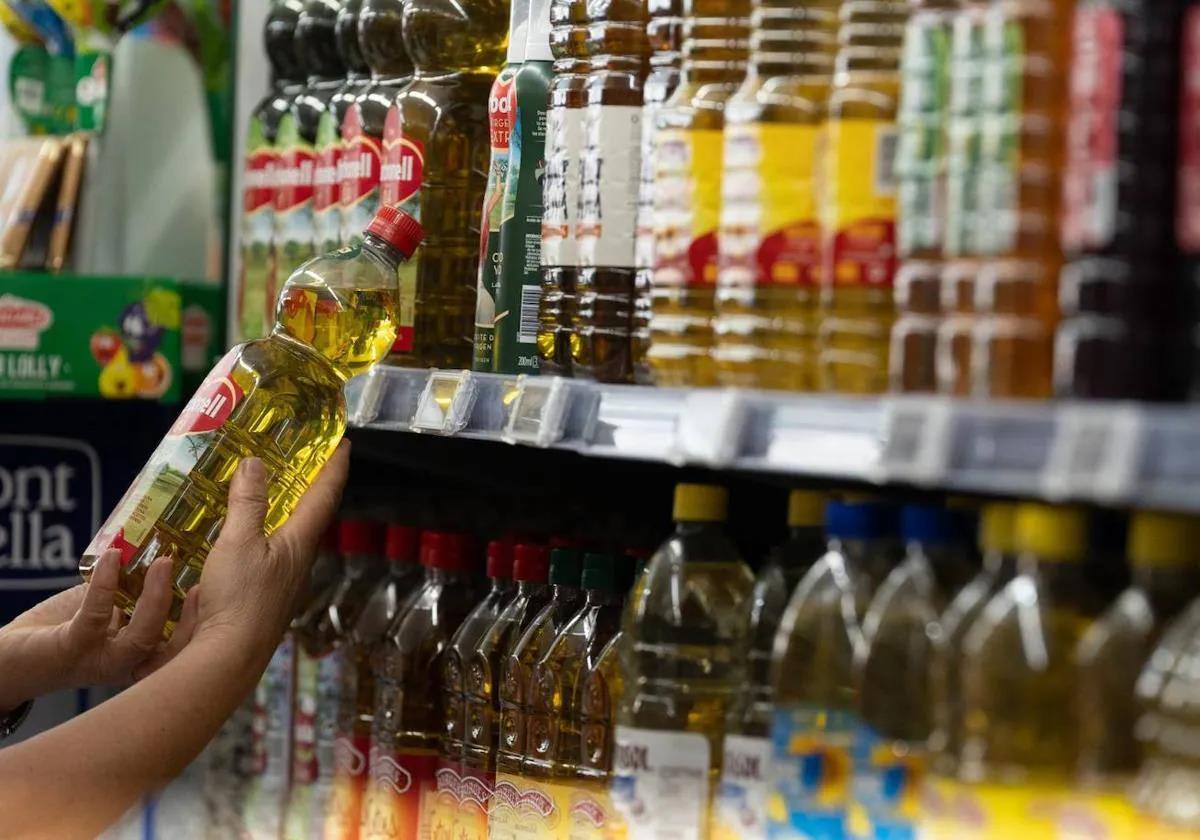These are the staple foods in Spain that will be more expensive as of tomorrow
The government's inflation-busting measure of reducing the IVA sales rate on some basic foodstuffs will be revised on Tuesday, affecting the prices of the following products
Spain's IVA sales tax on basic food products as part of the government's broader inflation-relief package will come to an end on 1 October.
On Tuesday, the 0% rebate on olive oil and other basic food products until now will go to 2%, while the rebate for basic foods, such as milk, bread, eggs, cheese, and fruit, lentils, tubers, cereals and vegetables that are natural products will change from 5% to 7.5%.
Before the government measure was implemented back in January 2023, the super-reduced rate applied to basic foodstuffs wwas 4%. Oil was not included in this, with an IVA of 10%, which first fell to 5% and then remained at 0%. From 1 January 2025, this product will also be taxed at the super-reduced rate.
Basic foods
Basic foods that will see their IVA change from 0% to 2% on Tuesday are: olive oil and seeds; milk; bread; flour; eggs; cheese; fruit; lentils; cereals; tubers and vegetables. Meanwhile, pasta and seed oils will go from 5% to 7.5%.
This comes when inflation has already fallen below the 2% target set by the European Central Bank (ECB). According to data from the INE national statistics institute, the consumer price index (CPI) fell eight tenths of a percentage point in September to 1.5%, its lowest level in the past three and a half years. And the underlying rate - which excludes fresh food and energy from its calculation, also fell by three tenths of a percentage point to 2.4%, its lowest rate since January 2022.
Food prices have also been moderating their rise during the application of the IVA reduction. According to INE statistics, food prices ended 2022 - before the government approved the measure - with a chilling year-on-year rise of over 15%.
By the end of 2023, the increase had stabilised to around 7%. By August 2024 - the latest available data - the rise in food prices was already around 2.5%, thanks mainly to the fall in the prices of oils and fats and vegetables, and compared to the data of the price rise recorded in August of the previous year.
The extreme case of oil
The statistics show the IVA rebate has only served to stabilise the increase in the cost of most of the products to which it applies compared to their pre-tax prices. But light is beginning to appear at the end of the tunnel. If the comparison is made month by month, the prices of staple products have fallen by 3.27% compared to last month, according to the price monitoring carried out by ASUFIN since the measure came into force.
Looking at the details, two products have the greatest downward drag on the shopping basket: bananas, with prices falling by almost 20%, and potatoes, by almost 15%. Whole milk also fell, but to a lesser extent, and the rest of the products remained stable, with no major increases, except for apples and spinach, which rose by around 3%.
One of the most extreme cases in recent times has been that of olive oil. At the end of 2023, with the government's measure already in place, its price rose by more than 54% in year-on-year terms.
This has led to a more favourable year-on-year comparison in 2024. In any case, so far this year the prices of oil continue to rise, albeit less sharply. The litre of olive oil recorded a year-on-year rise of 1.9% in August.
If the average price of a litre of oil was around 6.95 euros in September, as of this Tuesday, with the new IVA change, it will cost 7.09 euros. And the same will happen with other staple food items such as bread and pasta.
Successes and failures
Despite question marks about whether supermarkets were really applying the tax rebate on their products, various reports suggest that, without the measure - which until June 2024 meant a loss to the public coffers of more than 2,500 million euros - the price increase would have been greater. One of the most recent reports is a study carried out by PwC for Aecoc, the distributors' business association, which concludes that the measure has had a positive effect since, had it not been implemented, the CPI for basic foods could have risen by 1.4 percentage points more than current values.
Despite this, the measure has not been very successful in another of its main objectives: to benefit the most vulnerable families in the face of the price crisis. The Bank of Spain has warned on numerous occasions that, as a tax that affects all consumers equally, regardless of their purchasing power, in the end it ends up benefiting high income earners above all.
The INE's own data on household budgets support this. Continuing with the example of oil, and according to the latest available figures for 2023, the 10% of households with the greatest income will increase their spending on oil by 82%, from 119 euros in 2021 to 217 euros in 2023.
In other words, they consumed the same or even more than before despite the price increase. In contrast, consumption does fall in the most vulnerable households and the increase in spending barely exceeds 20 euros per family, confirming that the IVA reduction may end up benefiting higher-income households, which are the ones that consume the most.

